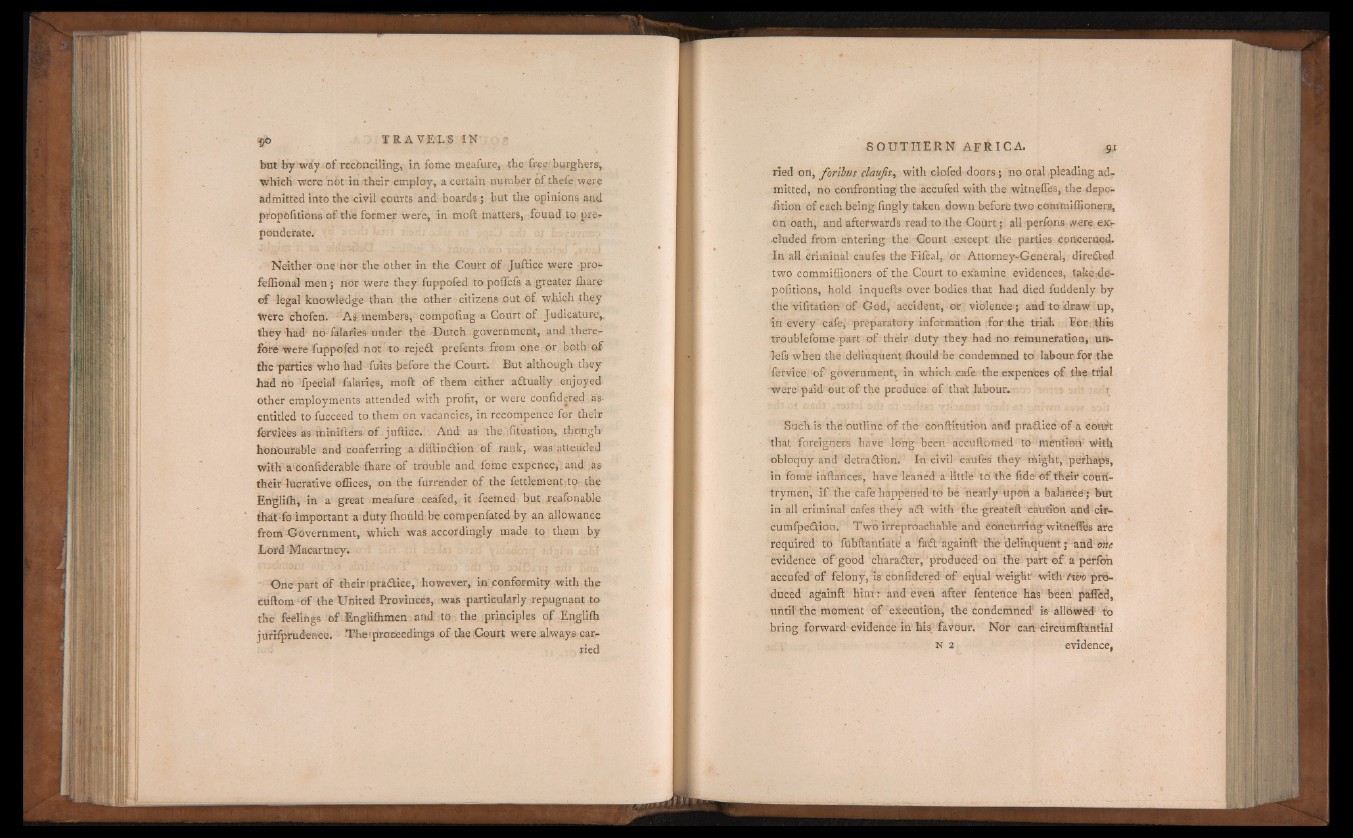
but by way of reconciling, in fame meafure, the free'burghers,
which were not in their employ, a certain number of thefe were
admitted into the civil courts and boards ; but the opinions and
propofitions of the former were, in moft matters, found to preponderate.
Neither one nor the other in the Court of Juftice were pro-
feflional men ; nor were they fuppofed to poffefs a greater ihare
of legal knowledge than the other citizens out of which they
were chofen. As members, compofing a Court of Judicature,,
they had nO' falaries under the Dutch government, and therefore
were fuppofed not to rejeft prefents from one or both of
the parties who had fuits before the Court. But although they
had no fpecial fakries, moft of them either a&ually enjoyed:
other employments attended with profit, or were Confid|red as-
entitled to fucceed to them on vacancies, in recompence for their
fefvjces as miaifters of juftice. And as the.ifituation-,, though
honourable and conferring a diftin&ion of rank, was attended
with a coniidcrable ihare of trouble and, fome expence;: and a>-
their lucrative offices, on the furrender of the fettlementtp the
Englifh, in a great meafure ceafed, it feemed but rcafonable
that fo important a duty ihould be compenfated by an allowance
from-Government, which was accordingly made to them by
Lord Macartney.
One part of their pra&iee, however, in conformity with the
euftom of the United Provinces, was particularly repugnant to
rhe foiling« of Engli&men and to the principles of Engliffi
jurifprudence. The’proceedings of the 'Court were always carried
ried on, foribus claujis, with elofed doors ; no oral pleading adr
mitted, no confronting the accufed with the witnefles, the depo-
iition of each being iingly taken down before two eommiffioners,
on oath, and afterwards read to the Court ; all perfcns were excluded
from entering the Court except the parties concerned.
In all criminal caufes the Fifcal, or Attorney-General, directed
two commiffioners of the Court to examine evidences, take de-
pofitions, hold inquefts over bodies that had died fuddenly by
the vifitation of God, accident, or violence; and to draw up,
in every cafe, preparatory information for the truth For this
troublefome part of their duty they had no remuneration, ura-
lefs when the delinquent ffiould be condemned to labour for the
fervice of' government, in which cafe the expenees of the trial
were paid out of the produce of that labour.
Such is the outline of the conftitutiou and pradlice of a court
that foreigners have long been accuftotned to mention- with
obloquy and detraction. In civil caufes they might, perhaps,
in fome inftarices, have leaned a little to the fide* of their couri-
trymen, if the cafe happened to be nearly upon a balance-; but
in all criminal cafes they a£t with the -greateft caution and cir-
cumfpefHon. Two irreproachable àrtd éoncùrring witneflfes are
required to fubftantiate a fadtagamft the delinquent ; and me
evidence of good charafter, produced oh the part of a perfeih
accufed of felony, is cOnfidered of eqtial weight' with two produced
againft him : and even after fentence has been, paffed,
until the moment of 'execution, the Condemned’ is allowed fo
bring forward evidence in his favour. Nor ean -circuffiftantlal
N 2 evidence,